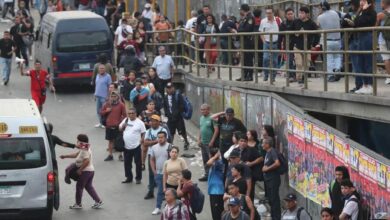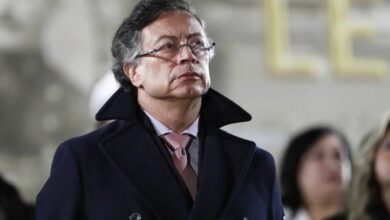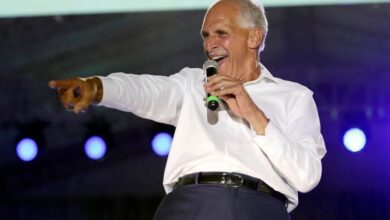Will The Right Be Able To Regain Power In The Elections In Latin America In 2023?
After 2022 with surprises and a turn to the left on the political map of the region, this 2023 may also bring changes in the electoral landscape. These are the next elections in Latin America.

Photo: Adobe Stock
LatinAmerican Post | Santiago Gómez Hernández
Listen to this article
Leer en español: ¿Podrá la derecha recuperar el poder en las elecciones en Latinoamérica en 2023?
In 2022, the Latin American electoral map gave two victories to the left. Presidents like Gabriel Boric, Luis Arce, Lula da Silva and Gustavo Petro. However, this 2023 begins, bringing a new electoral battle in several Latin American countries such as Guatemala, Paraguay, Cuba, Argentina, and Colombia.
Political Electoral Calendar Of Latin America 2023
Cuba – March 26
It is expected that on March 26, 2023, Cuba will hold its elections to renew the parliament and, indirectly, its president. Although Cuba is considered by many analysts to be a one-party dictatorship, Cubans go to elect the 605 members of the National Assembly of People's Power, all belonging to the Communist Party of Cuba, the only endorsed political movement on the island. That is why no big surprises are expected in these elections in the Caribbean country.
Paraguay – April 30
The South American nation will elect its president, vice president, 45 senators, 80 deputies, 17 governors, and 17 departmental councils on April 30. Whoever wins the presidency will take office on August 15 and will remain in office until 2028, without the possibility of re-election.
Paraguay is one of the few countries in Latin America that still maintains a right-wing government. President Mario Abdo Ramírez, of the Colorado Party, will not be able to seek re-election, but his party will seek to maintain the presidency. For their part, the Guasú Front and the Progressive Democratic Party will seek to maintain the region's trend and place a left-wing president in power.
Guatemala – June 25
The Central American nation will hold general elections next Sunday, June 25. In these elections, Guatemalans will elect who will occupy the presidency and vice presidency of the Republic, together with 160 deputies from Congress, 340 municipal mayors, and 20 defendants for the Central American parliament.
Read also: Supporters of Pedro Castillo, the unheard voice in Peru
So far, the list of possible candidates is made up of Ricardo Sagastume (former Minister of Finance and member of the Todos party); Roberto Arzu; Zury Ríos (Deputy for the Valor party); Rudio Lecsan (Deputy of the Humanist party); Isaac Farchi (Deputy of the Blue party); and Edmon Mulet of the Cabal party. The polls give Ríos as a favorite, but barely with vote intentions that range between 14% and 32%.
Argentina – August 13
The South American country is going through one of the most turbulent times in its history. With a struggling economy and a political crisis that seems to worsen day by day, Argentina will hold elections this year to choose the replacement for President Alberto Fernández. However, before the general elections, Argentines must go out on August 13 to vote in the Open, Simultaneous and Mandatory Primaries (PASO) to elect the candidates of each party for public office.
For these, it will be defined if the parties will go on single or separate lists. On the one hand, it must first be defined whether the Frente de Todos will finally compete together despite internal disputes, as in 2019, which ended with the victory of Alberto and Cristina Fernández. Similarly, Together for Change brings together sectors close to former right-wing president Mauricio Macri to see the future of Javier Milei's anarcho-capitalist.
Guatemala – August 27
If any candidate for the presidency fails to obtain an absolute majority of the votes, they must compete again in the second round. Whoever wins will replace Alejandro Giammattei, who has been facing serious accusations of corruption within his government. He is even accused of financing his campaign with bribes from a construction company.
Argentina – October 22
Before the PASO elections, Argentina will then hold the General Elections of senators, representatives, president, and vice president. Although these will define the future of the second power in South America, we will have to wait for the August primaries to have a clearer picture of candidates, favorites, and political map.
Colombia – October 29
The Andean nation will have regional elections. Within these, mayors, governors, and local legislatures will be elected in all the municipalities and departments of the country. Among the most important positions at stake are: the mayor's office of Bogotá, the mayor's office of Medellín, and the Governor's Office of Antioquia. The candidates are not yet known, but several names from local politics have already been mentioned.
Likewise, it is also expected that several referendums, consultations, and local or regional votes will be held in different countries. Likewise, wait if the new Peruvian government, headed by Dina Boluarte, advances the elections even further to 2023.




